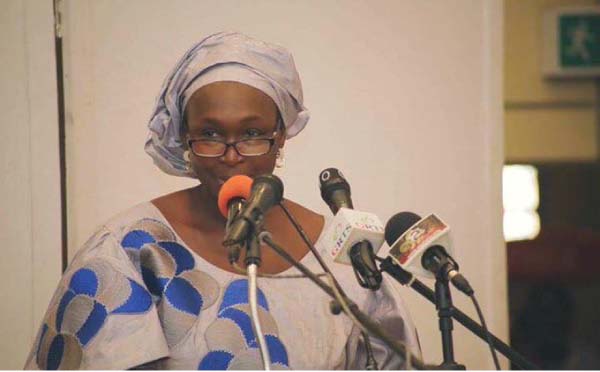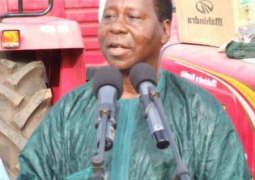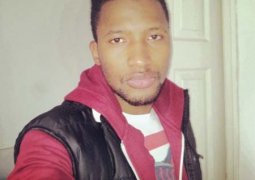
The
spokesperson for President Adama Barrow has said that the president did not
fail the people of Foni in anyway and the Gambian leader has expressed this in
many instances.
“Even
before he was elected, he went to Foni during his campaign and held meetings
there to show that we are all Gambians. He even showed his relations with all
ethnic groups of The Gambia. He went further to reveal his relationship with
Foni where his sisters are married to Jolas; his nieces and nephews are also
Jolas,” Amie Bojang-Sisoho told journalists last morning at the maiden press
briefing.
Mrs.
Bojang-Sisoho said the death of a Gambian in Kanilai which was as a result of a
confrontation between protestors and ECOMIG forces, “Is deeply regrettable”.
“We
extend our sympathy to the family of the deceased for their loss. However, we
are pleased that calm has returned to the area and President Barrow encourages
all citizens to be law abiding,” she said.
She
said the president had sent a delegation to engage the communities in Foni for
reconciliation.
“He
believes that we are all Gambians and we have the interests of our country,
which supersedes our own individual interests. Kanilai is integral part of
Gambia and the decision for ECOMIG to be based in the country is for national
security,” she said.
“After
the first (initial) disturbances that took place in Foni between political
rivals, delegations were sent to Foni, Kanilai in particular, so that they talk
to the elders and make them understand that change has come, and it is the
Gambians who have decided. Kanilai
should be part of that change because the president is the president of every
Gambian and non-Gambians staying in this country,” the president’s spokesperson
said.
“After
the incident where a life was lost, he also sent another delegation to console
the community and engage them for dialogue and reconciliation. So it is time to
understand that change has taken place, governments come and go but The Gambia
stays.”
Some
key highlights of the press briefing:
Truth
and Reconciliation Commission:
The
truth and Reconciliation Commission will be set up to begin hearing cases of
violations, abuses and calls for justice by citizens by the end of this year.
Amie
Bojang-Sisoho said by September, the truth and reconciliation commission will
become law to enable it begin operations. The draft bill is already at the
Ministry of Justice.
Think-tank
Mrs
Bojang-Sisoho said the think tank will comprise 15 members; 9 men and 6 women
from diverse disciplines and it will be launched by the president very soon.
A
national development plan, 2018-2021, is being formulated. Cabinet has agreed
on a formulation process of the draft plan to take into consideration the
priorities of the new government as articulated in the coalition manifesto and
the compact agreement agreed upon at the end of the cabinet retreat last month.
Environmental
issues at Gunjur
Government
has agreed on an out-of-court settlement with the company. The company will
remove its pipes from the sea, support a comprehensive ecological assessment,
and restore damage done on the ecology.
In
addition, the company will pay for the testing of the water to know how and why
it was affected.
Assets
declaration
To
promote continued good governance and transparency, all ministers have been
asked to declare their assets by the 15th of next month.
ICC,
Commonwealth
Gambia
never left the ICC. The former government has initiated the process of
withdrawal from the ICC. However, the new government stopped the process of the
withdrawal. The government has initiated plans to return to the Commonwealth
and it will take a while but the process has already begun.
External
threats
Our
foreign affairs and security authorities have noted it and are consulting their
international partners. The president urges everyone to work towards the
continued peace and stability of the country.
There
is no intelligence failure because the information has not been validated by
the national authorities. And the findings they have so far have not indicated
that.
That
is why they have been asked to consult and further discuss with international
partners to find out their source and nature of the threat.
Read Other Articles In Article (Archive)
QCell opens new customer care office in Brikama
Apr 7, 2011, 2:17 PM
Reduce Prices of Rice - CAG Chairman
May 15, 2009, 5:31 AM



